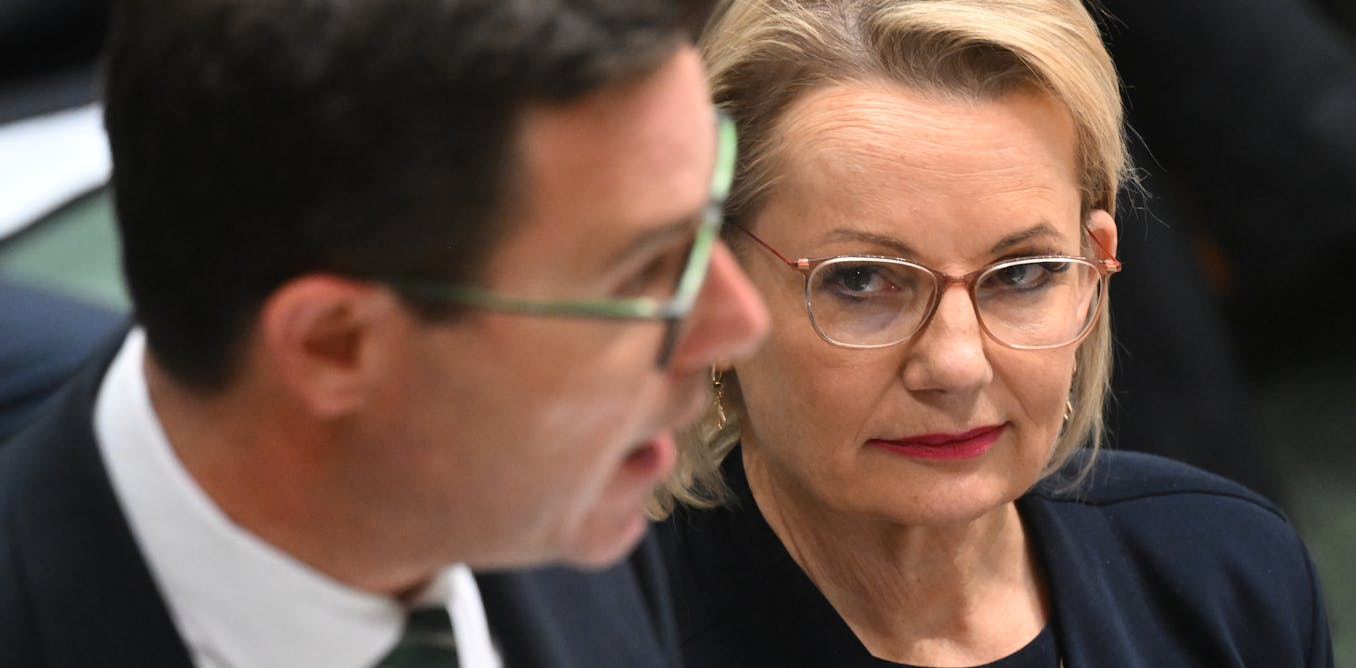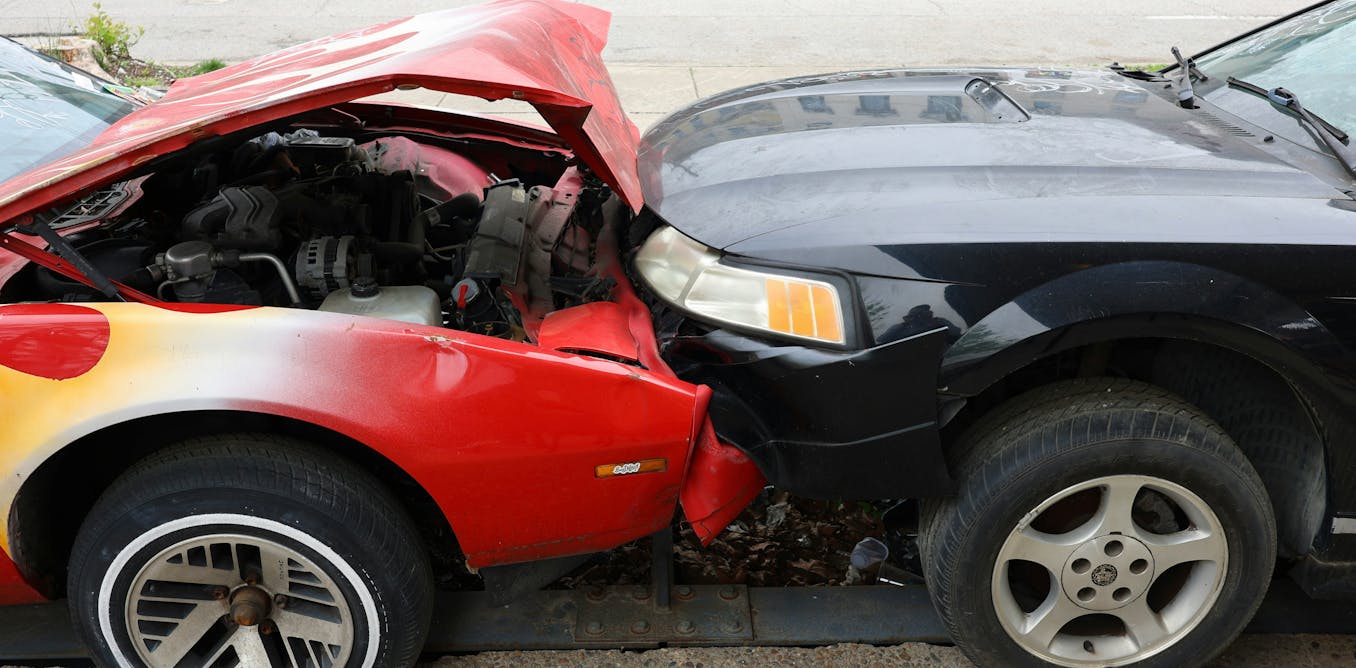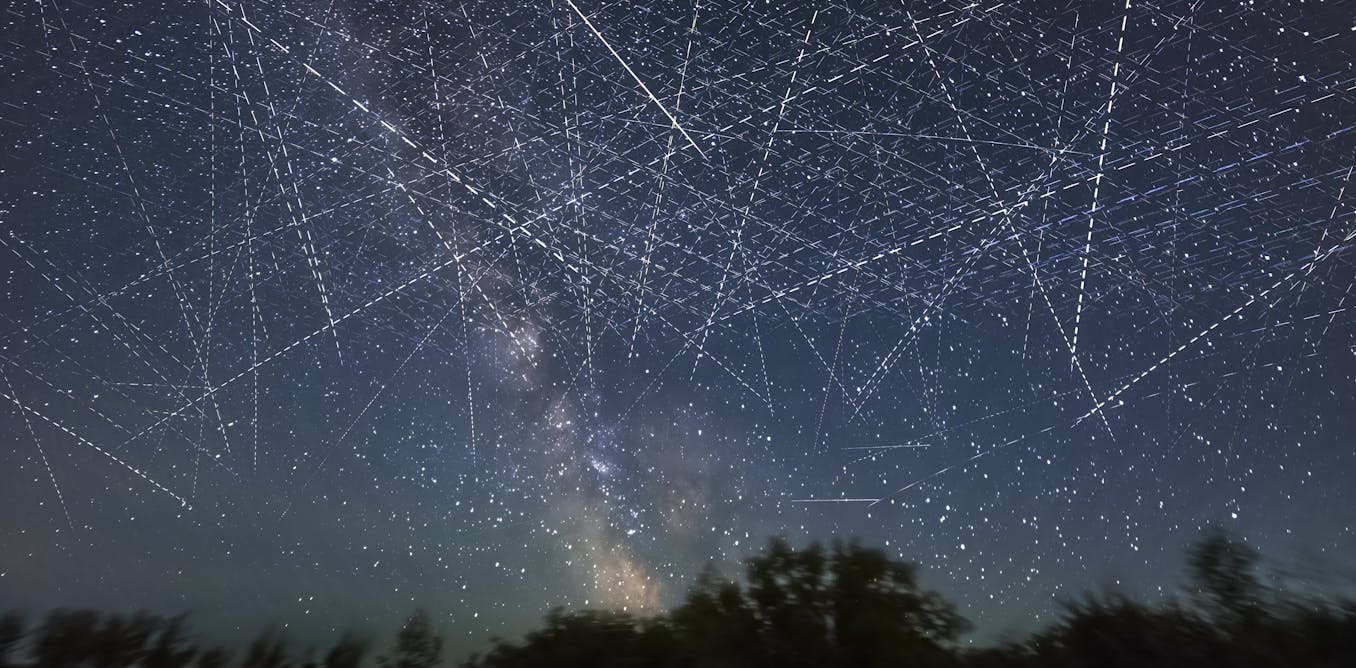There’s no other way of looking at it: Sussan Ley faces a diabolical situation with the debate over whether the Coalition should abandon the 2050 net zero emissions target.
The issue is a microcosm of her wider problems. The Nationals, the minor party in the Coalition, are determined to run their own race on most things. The Liberals have become akin to two parties, split between those eyeing urban seats and younger voters, and right-wingers reflecting the party’s conservative grassroots.
Nobody misses the contrast. The Albanese government is beset by a host of actual issues around the transition to a clean energy economy. The renewables rollout is not going as fast as desirable and is meeting with resistance in some communities. Energy costs are high. But such problems are not putting any pressure on Labor’s unity.
At the same time, the opposition is fractured over an argument about a target that’s a quarter of a century away, when who knows what the technological or political landscape will look like. For the opposition, the internal debate about net zero is about symbols and signals, rather than substance.
The net zero debate exploded within the opposition this week with Barnaby Joyce’s private member’s bill to scrap Australia’s commitment to it. The timing, in parliament’s first week, was extraordinarily inconvenient for Ley. But if not now, it would have erupted later.
On present indications, the Nationals appear likely to ditch the net zero commitment. David Littleproud, anxious to avoid the issue becoming a threat to his leadership, is reading the party room and positioning himself to be in the anticipated majority.
Asked on Thursday whether he supported net zero, Littleproud told the ABC, “well, I have real concerns about it, to be candid. What net zero has become is about trying to achieve the impossible, rather than doing what’s sensible.” But, he insisted, “we’re not climate deniers”.
It is less clear how the debate will pan out in the Liberal Party, once the group under Shadow Energy Minister Dan Tehan produces its report on energy and emissions-reduction policy.
Liberal sources say the issue is now being driven by the party’s grassroots, rather than the parliamentary party. Branches are throwing up motions to get rid of the 2050 target.
The Western Australian Liberal state council will debate a motion this weekend to drop the net zero commitment. The Queensland LNP organisation will consider its position next month. A few weeks ago, the South Australian Liberal state council rejected net zero.
With a policy review underway, Ley and the parliamentary Liberals have left a vacuum on the issue. Some Liberals warn the parliamentarians risk being run over by the party outside parliament. Others point out that on policy, the parliamentarians are independent of the organisation, which often comes up with right-wing motions.
How should Ley best handle the situation? By filling the vacuum with a position sooner rather than later. That means accelerating the Tehan report. Beyond that, ideally she should be taking leadership on the issue herself. But is she in a strong enough position to do that?
One idea being floated would be for the Liberals to retain the net zero target but extend the time frame. This wouldn’t stop the criticism about the shift.
Whether the Coalition could stay as one if its two parties had different positions on net zero may be an open question but it certainly would be messy.
On the other side of politics, the government is rapidly approaching a decision on another key target – the one Australia will put up internationally for cutting emissions by 2035. Inevitably, this will be contentious.
This target must be submitted by September (it was conveniently delayed beyond the election). Minister for Climate Change and Energy Chris Bowen has yet to receive advice on the target from the Climate Change Authority (advice that will be published). The target is expected to be between 65% and 75%.
The challenge will be to strike a target with sufficient ambition that doesn’t alienate business and the regions.
Joel Carrett/AAP
Next week the executive secretary of the United Nations Framework Convention on Climate Change, Simon Stiell, will be in Canberra for talks. His comments will be carefully watched.
Last year he told the Sydney Morning Herald, “the world needs countries like Australia to take climate action and ambition to the next level, and it’s firmly in the interests of every Australian that they do so”.
Climate and energy issues will have a place at next month’s economic reform roundtable. Bowen is organising two preliminary roundtables – on electricity, with energy user stakeholders, and on climate adaptation. He told The Conversation’s podcast that adaptation will “be an increasing focus of this government and future governments because, tragically, the world has left it too late to avoid the impacts of climate change”.
The government is waiting, somewhat impatiently, for the decision on whether Australia will be given the nod to host next year’s UN climate conference. The COP meeting, which would be in Adelaide in November 2026, is an enormous event to put on, so the decision is becoming urgent.
Bowen says Australia already has the numbers over Turkey, the other contender. But “one of the things about the process to decide COPs, I’ve learnt, is it’s quite opaque and there’s no particular timeline and no particular rules to the ballot.
“It’s meant to work on a consensus, sort of an old world, sort of gentlemanly sort of approach to say whoever loses will withdraw. That’s not the way it’s panning out. I’ve had multiple meetings with my Turkish counterpart to try to find a ‘win-win’ solution. We haven’t been able to find that yet.”
Stiell’s trip includes Turkey as well as Australia. Bowen will be hoping he may provide some clarity, when they meet, about how the “opaque” process of assigning the COP meeting is going. Bowen will be emphasising how important the proposed co-hosting COP with the Pacific is to the region, with climate change already an existential issue for many Pacific countries.

The post “net zero battle has net zero positives for Sussan Ley” by Michelle Grattan, Professorial Fellow, University of Canberra was published on 07/24/2025 by theconversation.com






































Leave a Reply